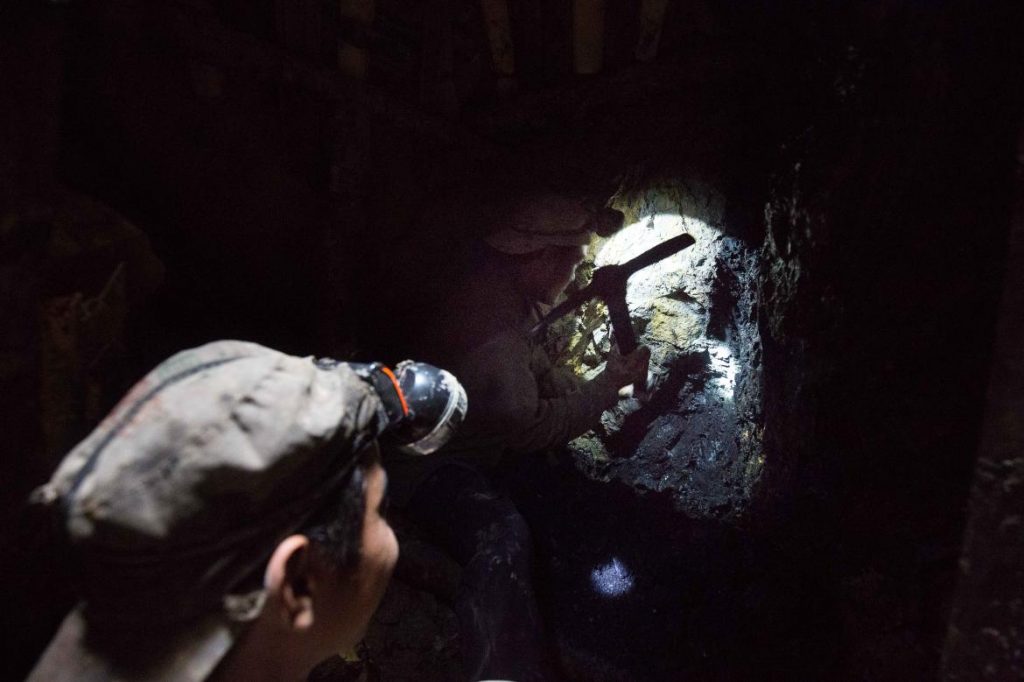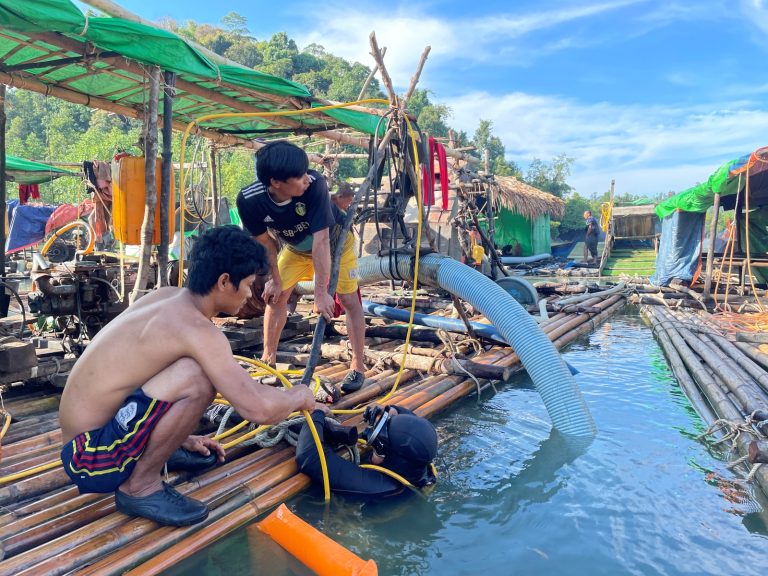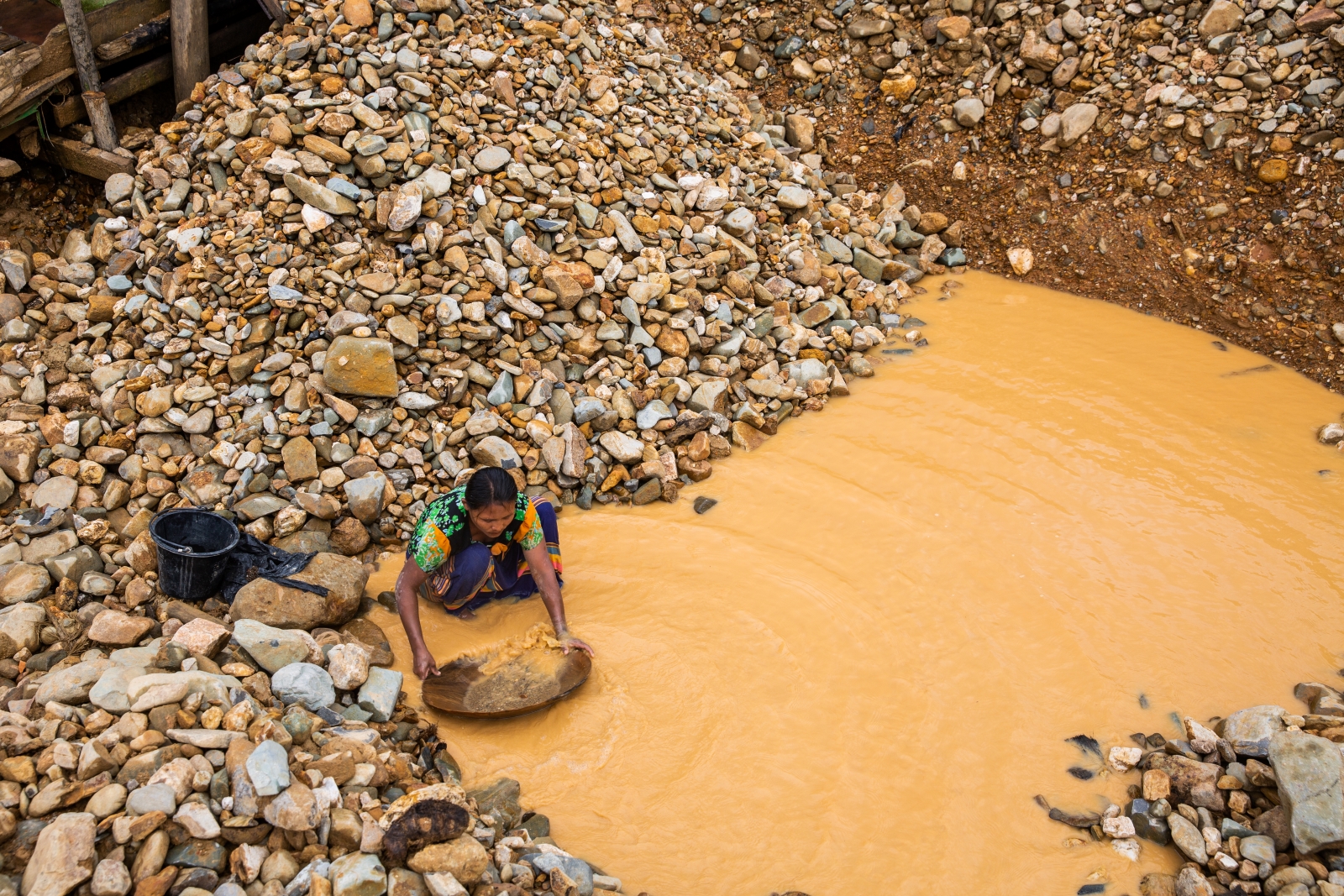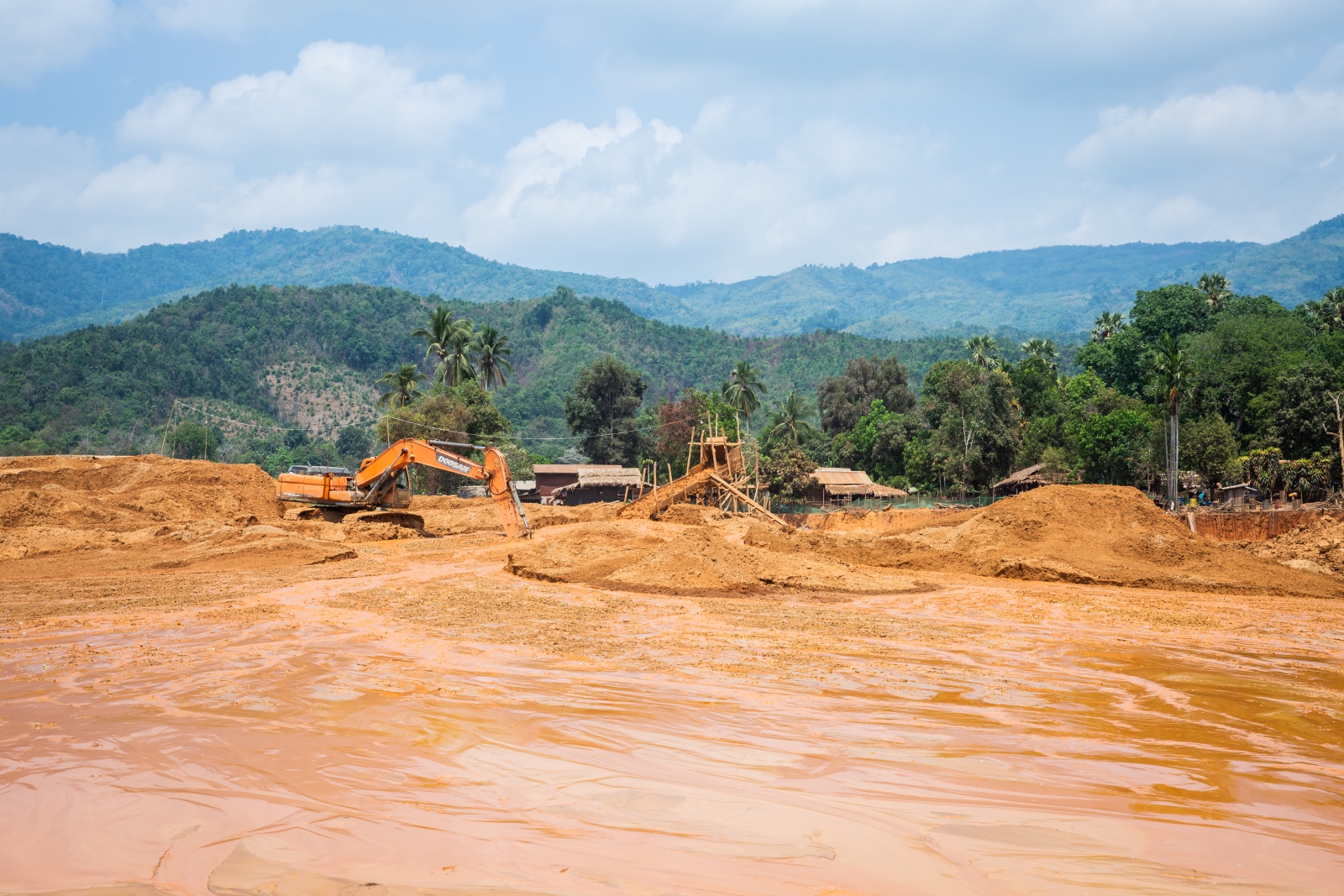Villagers living near Myanmar’s largest coal mine at Tigyit in southern Shan State say it is having a devastating effect on their health and livelihoods.
By OLIVER SLOW | FRONTIER
Last month, U Tun Hlaing, 63, a farmer in Tigyit, decided to change his drinking water supply from a well to a lake near the country’s largest coal mine.
The well, outside the Paunglaung Township town in southern Shan State, was drying up. U Tun Hlaing is now using the lake water for growing his crops and for washing but is reluctant to rely on it for drinking.
“The water [from the lake] is contaminated from the coal mine, but I don’t have a choice,” he said. “Before the coal mine, there was enough water for the town and surrounding villages, but not anymore.”
A picturesque agricultural town in the Shan hills, Tigyit has been renowned nationally for its rice, garlic and chillies. In 2002, work began on the multi-million dollar coal mine and coal-fired thermal power plant that have had a devastating effect on the lives of the area’s residents.
Support more independent journalism like this. Sign up to be a Frontier member.
It started ominously enough. In 2004, tremors from explosions at the open cut mine rocked the town and destroyed buildings, including Tigyit’s main pagoda.
“It felt like an earthquake, the whole town shook. They have still not replaced [the pagoda],” said U Tun Hlaing.
The situation has worsened since then, residents say.
The main investor in the project, the China National Heavy Machinery Corporation, called a temporary halt to production four months ago to conduct maintenance work. Residents say they expect production to resume soon.
The mine produces nearly 2,000 tonnes of coal every day, which is transported by trucks and a purpose-built conveyer belt to the power plant, which was completed in April 2005.
The Pa-O Youth Organisation said in a 2011 report that the power plant cost US$43 million and included two 60-megawatt turbines that generated 60 gigawatt hours of electricity.
No estimates have been made about the amount of water used by the project but it is enough to be causing serious concern in Tigyit.
U Maung That, 51, who like U Tun Hlaing is a farmer who lives in the town, also had to begin relying recently on contaminated water from the lake for his supply.
“Even for cultivation, it is having an effect,” said U Maung That. “There is so much sedimentation in the water that I have to clean it three or four times before I can use it on my crops,” he said, adding that he was worried about the future. “There are many problems with this project, but water is the main one,” he said.
“Do we see any benefit from this? Absolutely not. Not only is there the water and health issues, but no jobs are given to the villagers.”
Seated beside U Maung That in his simple home on the edge of town, U Ba Si, 63 and also a farmer, suddenly interrupted.
“Water is the biggest problem we have,” said U Ba Si, his face contorting in anger. “Please tell people, tell the UNDP [United Nations Development Programme] about this problem we have. We need people to know about this situation because we worry about our future,” he said.
Asked what should be done by agencies such as the UNDP, U Ba Si said the area needed clean water supplies.
He also called for action on the project from the Pa-O National Organisation, which in the November 8 election won upper and lower house seats in the Union parliament for Paunglaung Township, as well as six seats in the Shan State regional assembly.
“They won the people’s support in the election, they have a lot of power now, so I hope they will take action to help us,” U Ba Si said.
One of the main health concerns about the power plant is air pollution caused by fly ash, the waste created by burning coal. Fly ash contains mercury, lead, arsenic and other harmful substances and can lead to a range of illnesses.
Major health risks related to coal mining include asthma, chronic bronchitis, nervous system damage and “black lung”. No studies have yet been conducted to determine if the mine and power plant are creating health problems, as many Tigyit residents believe.
The PYO report said 12,000 residents, about 50 percent of the local population, suffered from skin disorders caused by the mine and power plant.
“I have started itching very badly since I started using the [contaminated] water for washing,” said U Maung That. He said almost all villagers had skin problems but none had consulted a doctor and they self-treated using traditional medicine.
The Ministry of Electric Power estimates that demand for electricity will rise by between 13 percent and 15 percent a year in the coming years. It has made power generation a priority and its plans include building 11 coal-fired plants; four in Yangon Region, three in Tanintharyi Region, and one each in Shan and Mon states and Ayeyarwady and Sagaing regions.
Many of the projects have faced fierce criticism from environmental groups.
Addressing an economic summit in Yangon in May, U Win Myo Thu, co-founder and managing director of environmental group EcoDev, said many groups in Myanmar opposed coal projects.
“Coal power is a great concern internationally as the world is looking to reduce carbon emissions which cause climate change,” he said.
Meanwhile, in Tigyit, U Ba Si said residents are becoming increasingly worried about the mine and its effect on their lives.
“Do we see any benefit from this? Absolutely not. Not only is there the water and health issues, but no jobs are given to the villagers,” U Ba Si said. He said that most jobs go to ethnic Bamar people who are brought in from other parts of the country and he could count on two hands the number of local people who found jobs related to the mine and the power plant.
“They take the land, but they do not give anything back. They need to give something back to the local community,” he said.







